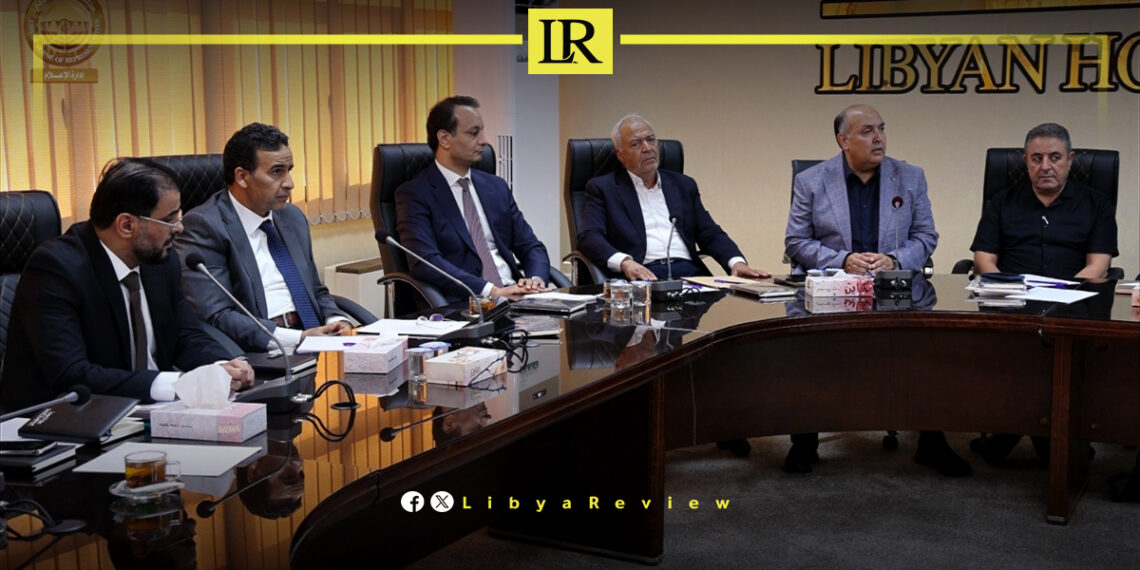A joint meeting was held on Tuesday, bringing together the First Deputy Speaker of the House of Representatives Fawzi Al-Nuwairi, Second Deputy Speaker Mesbah Douma, several MPs, the Prime Minister of the Government-designate Osama Hammad, his Deputy Khaled Al-Osta, and the General Director of the Libyan Development and Reconstruction Fund, Abu Al-Qasim Haftar.
The meeting, held at the headquarters of the House of Representatives in Benghazi, focused on discussing several critical files and topics. The MPs received a detailed review of the achievements of the government and the Development and Reconstruction Fund regarding developmental and service projects across all regions.
They also examined the progress of these projects, the execution timeline, and the government’s adherence to the laws, decisions, and instructions issued by the legislative authority represented by the House of Representatives.
Another meeting, also led by First Deputy Speaker Al-Nuwairi, included members of the House from the western region, the Prime Minister and his Deputy representing the western region, and the Head of the Development and Reconstruction Fund.
This session specifically discussed the developmental and service projects in the western region and emphasized the need for appropriate attention to be given to these projects, aligning with the ongoing unprecedented developmental and urban renaissance across all Libyan regions.
Libya has been in chaos since a NATO-backed uprising toppled longtime leader Muammar Gaddafi in 2011. The county has for years been split between rival administrations.
Libya’s economy, heavily reliant on oil, has suffered due to the ongoing conflict. The instability has led to fluctuations in oil production and prices, impacting the global oil market and Libya’s economy.
The conflict has led to a significant humanitarian crisis in Libya, with thousands of people killed, and many more displaced. Migrants and refugees using Libya as a transit point to Europe have also faced dire conditions.
The planned elections for December 2021 were delayed due to disagreements over election laws and the eligibility of certain candidates. This delay has raised concerns about the feasibility of a peaceful political transition.
Despite the ceasefire, security remains a significant concern with sporadic fighting and the presence of mercenaries and foreign fighters. The unification of the military and the removal of foreign forces are crucial challenges.


